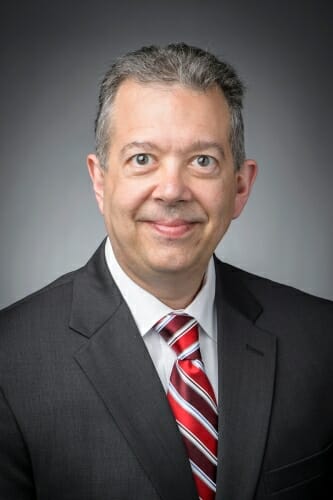UW-Madison ranks 2nd in doctorates awarded, climbing from 3rd

A graduate holds up her diploma cover during the commencement ceremony for doctoral, MFA and medical degree candidates in May 2017. Photo: Bryce Richter
The University of Wisconsin–Madison awarded the second highest number of Ph.D.s overall and the most life sciences Ph.D.s of any U.S. university in 2016, according to the Survey of Earned Doctorates, a national project that collects annual data on doctoral graduates.
The UW–Madison Graduate School conferred 823 doctoral degrees in 2016. The year before, the UW ranked third, with 836 recipients.
In addition to its overall second place ranking, UW–Madison tied for third in mathematics.
Nationwide, 54,904 Ph.D.s were awarded in 2016, showing no growth from the prior year despite consistent growth in the number awarded since 2011. The University of Texas at Austin ranked first.
“The high number of Ph.D. degrees awarded is a result of multiple factors,” says William Karpus, dean of the Graduate School. “First, UW–Madison has breadth and depth in terms of graduate programs. Second, the outstanding UW–Madison faculty-driven research enterprise is an attraction for top graduate students from across the world. Finally, the combination of graduate student tenacity and faculty mentoring plays a significant role in the creative process necessary to bring research projects to fruition.”
Ph.D. recipients from UW–Madison go on to pursue a variety of career opportunities across education, government, nonprofits and the private sector.
In the Graduate School’s exit survey, over 70 percent of UW–Madison doctoral students report securing employment by the time they complete their degree, surpassing the national average of 62 percent. Nearly 90 percent of students employed at the time of graduation also report gaining a position in the field of their doctoral training.
Of UW–Madison doctoral students who reported post-graduation employment, 23.9 percent said they had a tenure-track faculty position and 15.3 percent reported a faculty non-tenure-track position. In some disciplines, students work as postdoctoral researchers before securing tenure-track appointments. About 40 percent of UW–Madison graduates take postdoc positions after graduation.
Ph.D. recipients from UW–Madison go on to pursue a variety of career opportunities across education, government, nonprofits and the private sector.
The Graduate School participates in a number of data sharing projects to improve information for graduates who pursue jobs other than tenure-track faculty positions. In December, UW–Madison announced its partnership in a coalition that seeks to improve the availability of career data for life science students. In another project, the Graduate School received a grant from the Council of Graduate Schools to study long-term career pathways of its Ph.D. graduates.
These projects are aimed at helping prospective and current students make better-informed decisions about the variety of careers they can pursue with an advanced degree.
“The value of a UW–Madison Ph.D. reaches throughout the increasing variety of careers our graduates pursue,” says Karpus. “In their time here, our students gain skills and experiences that prepare them to be innovators and thought leaders throughout the state and world, exemplifying the Wisconsin Idea.”
Tags: Graduate School, graduate students, students




